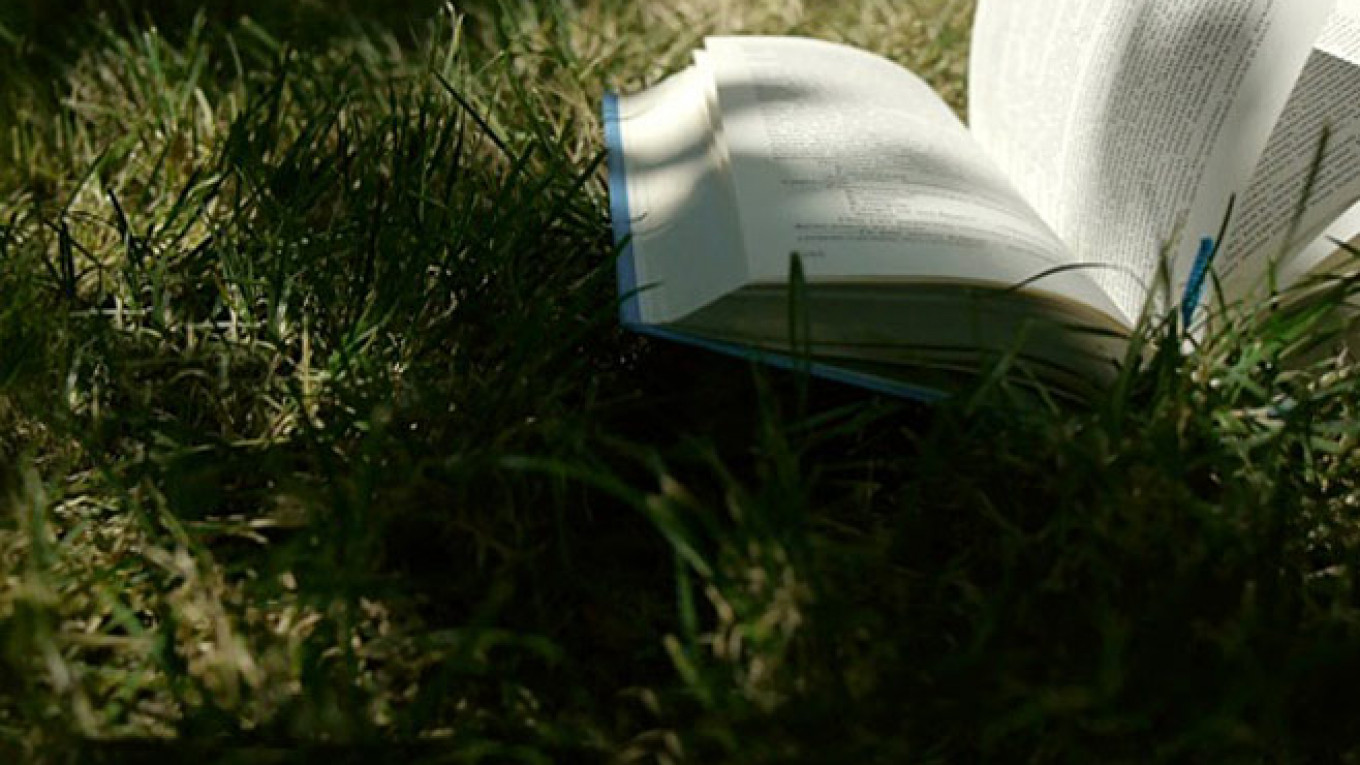Following four days of bookselling on Red Square, Moscow's celebration of literature continued this weekend at Muzeon Arts Park, with the launch of the inaugural Literature Summer program as part of the Ahmad Tea Music Festival.
Organized by Ahmad Tea and the British Council, the event gathered together a number of English and Russian authors to share their expertise and opinions with Moscow's literati. Last year's Russian Booker Prize winner Vladimir Sharov talked about using historical facts in fiction in relation to his prize-winning book "Return to Egypt" (Vozvrashcheniye v Yegipet). Other speakers representing Russia included eminent short-story writer Tatyana Tolstaya and film and stage director Kirill Serebrennikov.
Representing the British literary community was former Moscow Times book editor Natasha Fairweather, now joint head of books at United Agents in London, who led a discussion with Russian publisher Gleb Uspensky on the impact of e-books, Kindles and piracy in relation to the market.
While the e-book is nowhere near as dominant in Russia as it is in the West, both speakers expressed concern for the physical book's survival. Fairweather praised writers such as J.K. Rowling for fighting the power of Amazon and other "massive American conglomerates" and described her role as a literary agent as a "gatekeeper," enabling her to "give writers a platform to speak to the world."
Northern Irish science-fiction writer Ian McDonald gave an entertaining talk about the impact of the Internet and social media on today's writers. He explained how we now live in a culture of validation where "attention is the new currency" and memories are outsourced onto social media platforms. He expressed his admiration for those who still strive for "real" experiences, such as those who had turned up in the pouring rain to watch him speak, rather than watching a live stream or tweeting. On that note, he described the possibility of writing novels on Twitter in bite-size installments: "As a science-fiction writer, these possibilities are fascinating to me."
One of the afternoon's final speakers was John Mullan, professor of English Literature at University College London. His topic, "The Tricks of Contemporary Fiction" used writers such as Ian McEwan, David Mitchell, David Nichols and Zadie Smith to illustrate some of the postmodern techniques used by contemporary writers, and how in fact these methods can be traced back to classic authors such as E.M. Forster and Jane Austen. His talk was translated into Russian, allowing the audience to follow him in real time.
Many aspiring authors and poets were in attendance, hoping to get a good word in with some of the speakers. This represented the international appeal that the British Council had hoped to generate. Fairweather expressed her gratitude to the organization, stating that in these difficult political times the opportunity for the two nations to bond over their love of literature was invaluable.
Contact the author at artsreporter@imedia.ru
A Message from The Moscow Times:
Dear readers,
We are facing unprecedented challenges. Russia's Prosecutor General's Office has designated The Moscow Times as an "undesirable" organization, criminalizing our work and putting our staff at risk of prosecution. This follows our earlier unjust labeling as a "foreign agent."
These actions are direct attempts to silence independent journalism in Russia. The authorities claim our work "discredits the decisions of the Russian leadership." We see things differently: we strive to provide accurate, unbiased reporting on Russia.
We, the journalists of The Moscow Times, refuse to be silenced. But to continue our work, we need your help.
Your support, no matter how small, makes a world of difference. If you can, please support us monthly starting from just $2. It's quick to set up, and every contribution makes a significant impact.
By supporting The Moscow Times, you're defending open, independent journalism in the face of repression. Thank you for standing with us.
Remind me later.






